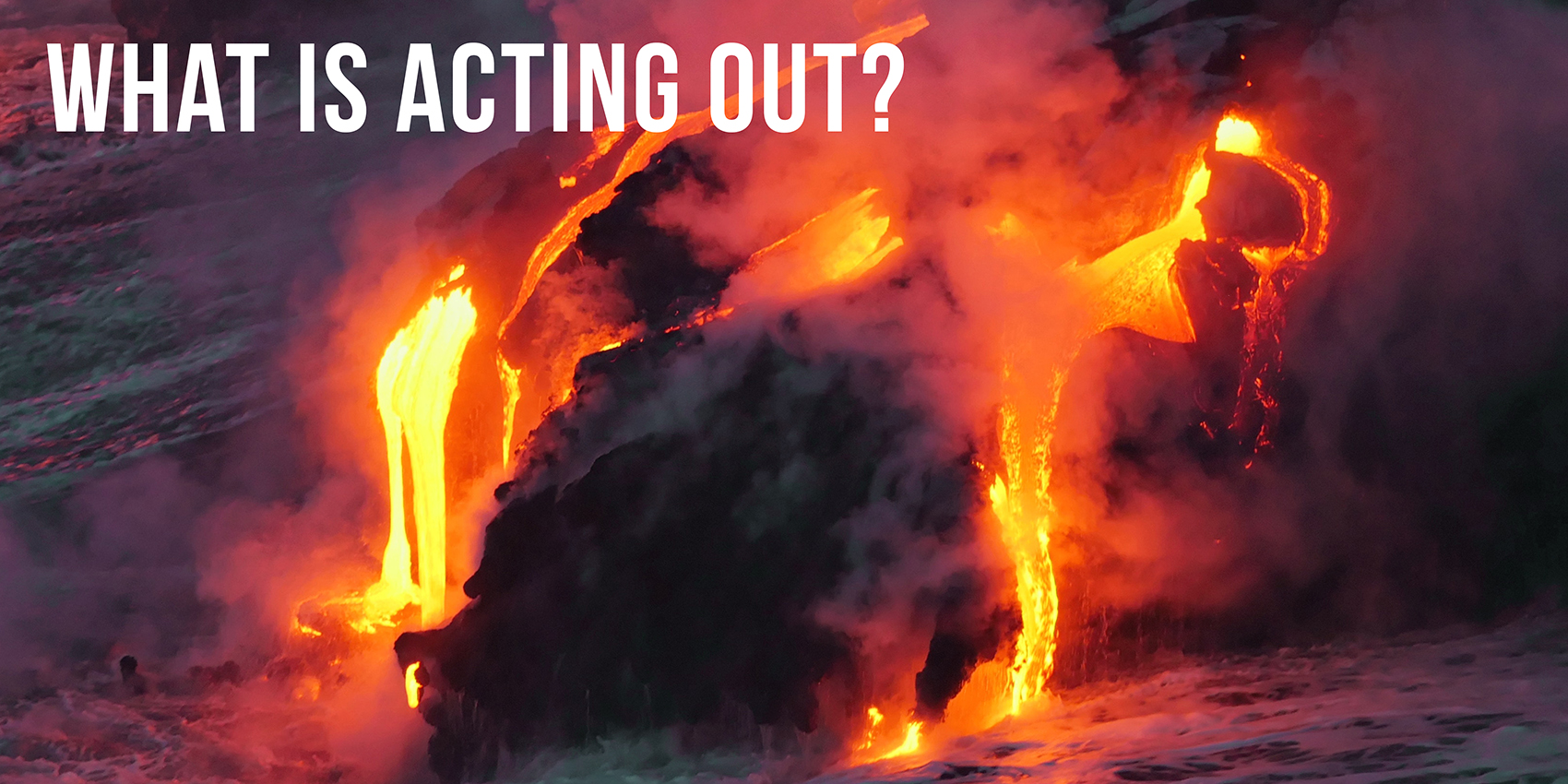23 Feb What is acting out?

Acting out is a term some people use but often few people understand. Since it relates to mental health, we thought we would explain it here. Basically, really mentally healthy people keep acting out to a minimum.
Let’s compare you and your emotions to a bottle of soda or seltzer water or anything with “fizz.” Just like the cap to a soda bottle keeps the spark and fizz sealed up, your cap (your mind) keeps your emotions bottled up too, right? And you are the one in control of when to pop the cap, loosen it a little, or keep it on tight – depending on the situation and your awareness. If someone shakes up your bottle of soda (your emotions) and you leave the cap on, pressure results because your emotions get trapped inside. (That negative energy remains in the bottle). Naturally, the energy (the pressure) needs a release.
That same thing happens to people when they ignore frustrating and irritating events. Their emotions get all stirred up inside of them but they don’t release them – they remain bottled up. Imagine one day somebody says the smallest thing to you and BAM! Your cap (mind) couldn’t handle the pressure. It flies off and your emotions explode! You then spray your emotions all over people, and sometimes not even at the ones who stirred you up. (This is what Stephen did to his younger brother after the line cutting incident.) If you had been aware of and had expressed your emotions (took off your bottle cap) at the first sign of irritation, you would have been much more in control of your response (like Kate). The end result would have been more of a fizzle than an explosion.
You don’t want to needlessly spray your emotions onto other innocent people, right?
Likewise, people can go “flat” with their emotions so that “nothing stirs them up” anymore. If you choose to always keep the cap off your bottle (keep your mind away from your emotions), you will be in danger of going “flat.” In the face of constant trauma, some people find that it’s easier to keep the cap off than to feel that explosive feeling all the time (after all, who wants to feel that feeling, right?). BUT! This may also happen to you when you have too many difficult events in your life (constant stirring) and you don’t DEAL. You go emotionally flat.
You most likely do not want to be an exploding soda bottle, or an emotionally flat one, right? So, what can you do? The bottle cap represents your control over your emotional self. You totally get the analogy, right? If you release the pressure when appropriate, then you will keep people from “stirring your soda.” How? By becoming aware and responding accordingly you allow your emotions to “bubble up” appropriately. You want to bubble up from time to time—to feel life! That’s what makes you bubbly and effervescent! (Uh, yeah, that’s a good thing.)
Just remember that the way you release your emotions (ease the pressure) says a lot about who you are, too. You have a choice between what we call “adaptive” styles of releasing emotions and “maladaptive.” Adaptive is stuff like, going for a run, punching a pillow, or writing a letter you may never send – no one gets hurt with these strategies. Maladaptive is when you hit someone, cut, bully an innocent person, etc. This is when someone, even yourself can become hurt as a result. You can read a lot more about adaptive ways to deal with emotions in the post about dealing with stress reduction.




WLKHS2301
Posted at 17:42h, 01 MarchI usually bottle up my emotions, and this is not good because then I feel sad and angry with myself. I could write down my feelings to avoid bottling them up. Or I could talk to my mom to express how I’m feeling so that I won’t explode.